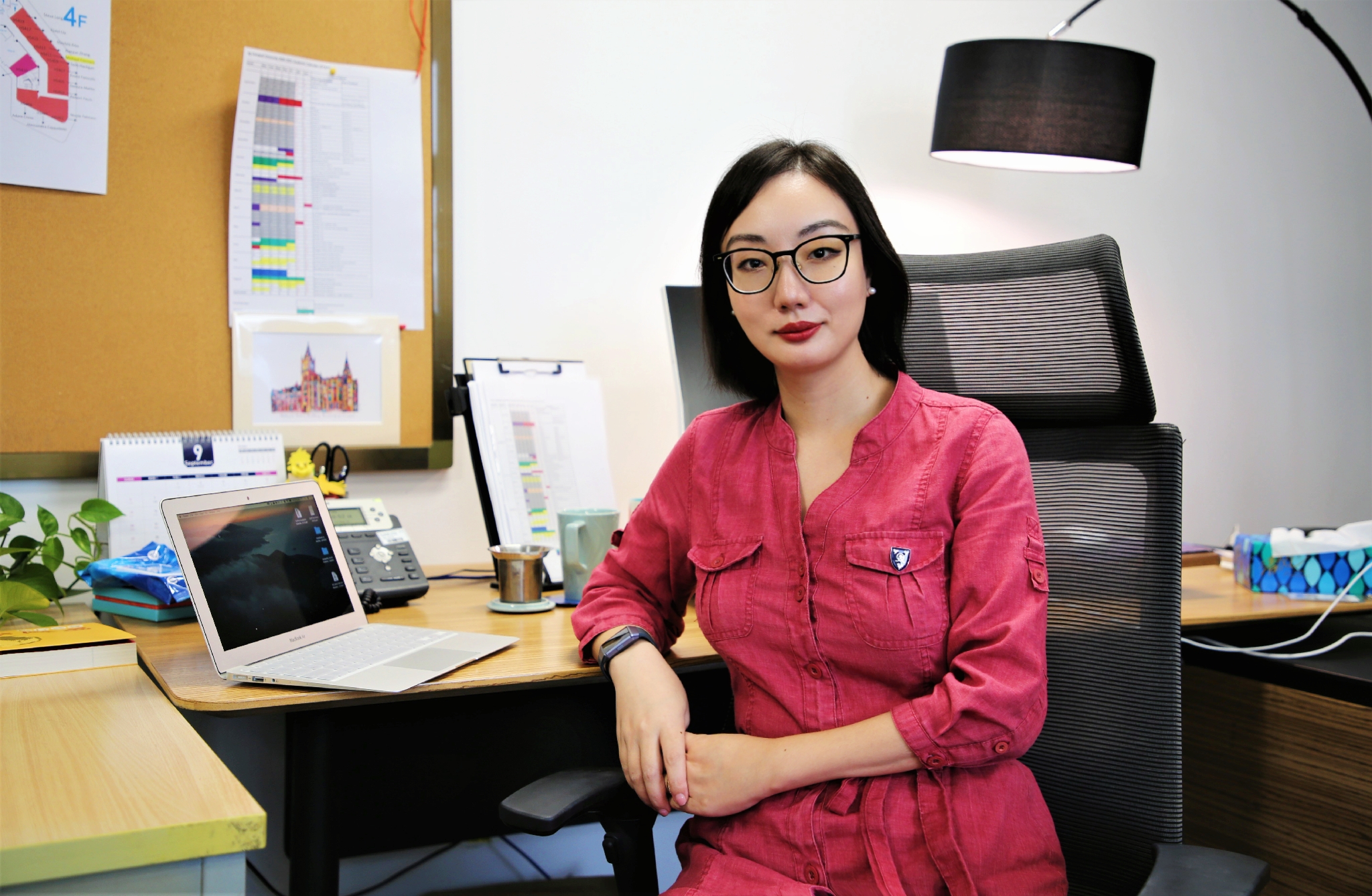24 Sep 2020
“The spread of COVID-19 necessitated a huge change in teaching pedagogy,” says Dr Beibei Tang, the Dean of the School of Humanities and Social Sciences at Xi’an Jiaotong-Liverpool University. “But the School of Humanities and Social Sciences (HSS) is proud to say it has managed to keep things running smoothly, and is well positioned to have a great semester this autumn.”

School of HSS is a new school within XJTLU which was established in September 2020 from the former HSS Cluster, and contains six academic departments: China Studies, International Studies, Media and Communication, Applied Linguistics, Translation and Interpreting, and Literature.
As well as launching two brand new MA programmes, at the beginning of the new academic year, the School has recruited an exciting group of new academic staff with diverse cultural and educational backgrounds, from institutions such as ETH Zurich in Switzerland, the University of Trento in Italy, and the University of Wisconsin-Madison in the US, to provide an advanced learning and teaching environment.
The School represents diversity in both staff and student bodies, with our academic staff complement of over 60 members coming from around 15 countries. In addition to degree students, under normal circumstances the School receives around 150 international visiting and exchange students each year.
“In this academic year, we have approximately 750 undergraduates, over 200 masters students, and 21 PhD students,” Dr Tang says. “All the domestic degree students have come back to campus this semester. All seven of our undergraduate programmes have resumed on-campus teaching, together with online delivery. Our largest postgraduate programme, MA TESOL, has reached a new peak of over 100 students. In the meanwhile, MSc Media and Communication also experienced an increase in student numbers from 15 in the last academic year to 57 in this academic year. In addition, this year the Department of International Studies launched two new postgraduate programmes: MA International Relations, and MA International Business and Global Affairs, which has already recruited over 60 students. We’re very inspired by those numbers, especially considering the difficult circumstances of the past year.”
With these new developments, it’s seems like the School is well-placed to reach its goal of delivering attractive, high-quality humanities and social science degree programmes.
Tough times
But, of course, this has not been without its challenges.
During the pandemic, teaching became much more complex than before, with teachers trying to maintain their standard of education in unexpected circumstances.
“Teachers have been working hard, going beyond what they were expected to do under normal circumstances,” Dr Tang says. “But together, we have developed a series of responses and solutions to help students and staff through this challenging time.”
One thing the School has implemented is more frequent feedback: “To ensure the quality of education, from last semester, all the programmes in the School have been collecting feedback from students every three weeks, in order to have a thorough understanding of the situation and make adjustments as soon as possible” says Dr Tang.
The School has also increased the number of online group projects in order to get more students involved in group discussions, to maintain the frequent interactions between students and teachers that many had been missing from online lectures, and to enhance research-led teaching through students’ participation online.
Midnight lectures
Some overseas teachers who were not able to come back due to travel restrictions had to adjust to the Suzhou time zone and wake up either in the middle of the night or early morning in order to deliver their lectures and conduct one-on-one consultations. Moreover, some classes cover multiple time zones as the teacher, domestic students and international students are in different time zones.
Teachers at School of HSS also adjusted quickly to prepare a new version of their teaching content, suitable for online teaching.
In addition to teaching, they needed to do some learning themselves, to use the new teaching technologies they need for their work. “We strongly encouraged the staff to attend trainings provided by the University in July and August to enable teachers to get familiar with the new technology and to be fully prepared for this new semester,” Dr Tang says.
“Online teaching and learning is a new experience for students, but it is also a new experience for our teachers,” Dr Tang says. “Both our teachers and students gained valuable experience in last semester, that helped them to be better prepared for this semester’s hybrid teaching which includes both onsite and online teaching.”
The door is open
For the new semester, the majority of the teachers at School of HSS are on campus and those who are overseas have started arranging their return trip.
One thing that will remain from last semester, however, is the increased number of one-on-one consultations.
"We will provide more office time and encourage students to come and discuss about any confusions, challenges, and ideas they may have," Dr Tang says.
By Ying Jiang, edited by Patricia Pieterse
Photo by Yanyin Ni
24 Sep 2020








